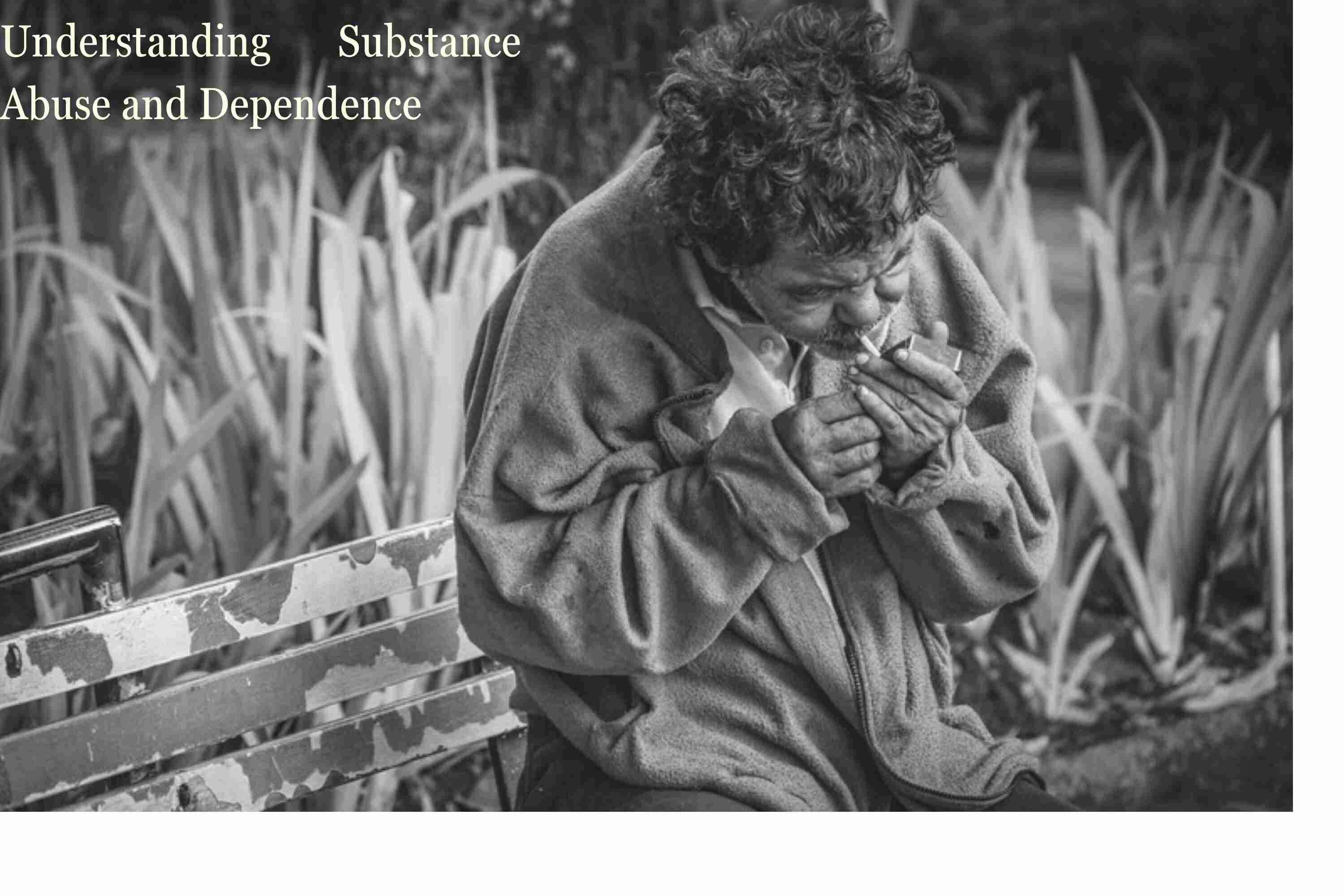Health Tools
Hygiene
Naturopathy
Mental health
More Articles
Understanding Substance Abuse and Dependence

Introduction
Substance abuse and dependence are pervasive issues that affect individuals, families, and communities worldwide. This composition provides an in-depth discussion of substance abuse, focusing on alcohol and various drugs such as cocaine, marijuana, heroin, and prescription medications. It delves into the causes, complications, and available treatment options for these conditions, aiming to shed light on these complex and multifaceted problems.
Alcohol Misuse and Its Wide Impact
Alcohol abuse in India has far-reaching consequences, affecting all parts of society, especially the youth. Substance abuse is on the rise globally, resulting in deteriorating health, increased crime rates, reduced productivity, damaged relationships, erosion of social values, and hindrances to societal progress. Of particular concern is the vulnerability of young people to substance abuse.
Complications of Alcohol Misuse
Alcohol dependence can lead to severe complications, including heart and liver conditions, both of which can be fatal. Other complications include bone loss, sexual problems, birth defects, vision issues, diabetes-related problems, an increased risk of cancer, and a weakened immune system. The social and economic impacts of alcohol consumption extend to individuals, their immediate environment, and society as a whole.
Family Consequences
Within a family, alcohol abuse and dependence can be destructive, straining marriages and driving wedges between family members. Physical altercations aren't uncommon among married couples where alcohol abuse is present. Over time, family members may develop symptoms of codependency, unintentionally perpetuating the dependence despite its harmful effects on their lives.
Clinical Research on Complications
Clinical research groups are dedicated to studying the complications arising from alcohol and drug abuse, with a specific focus on substances like opioids and cocaine. Some drugs, particularly opioid painkillers, pose significant risks and lead to dangerous complications, ranging from minor issues to life-threatening events.
Financial Consequences of Substance Abuse
Substance abuse has significant financial consequences for individuals, leading to unforeseen financial difficulties. The total costs associated with substance abuse include healthcare expenses, lost productivity, legal charges, prevention efforts, public support and social services, and business-related costs.
Symptoms of Alcohol Abuse
Recognizing the warning signs of alcohol abuse is essential to prevent the condition from progressing to Alcohol Use Disorder (AUD). Early intervention and treatment can make a significant difference in an individual's recovery process.
Treatment of Alcohol Addiction
Alcohol Use Disorder (AUD) is a condition in which individuals struggle to control their alcohol consumption and experience emotional difficulties when not drinking. Effective treatment is necessary to address this condition.
9
Starting with a Healthcare Provider
Individuals with alcohol abuse and milder cases of alcohol dependence should consult with a healthcare provider to discuss their goals, whether it's reducing alcohol consumption or quitting altogether. A treatment plan can be developed, and individuals may be referred to a treatment center or specialists for support.
Treatment Options
The choice of treatment depends on an individual's situation and goals. Combining multiple treatments often yields the best results. Treatment programs can be inpatient or outpatient, with inpatient programs involving a stay at a treatment center, while outpatient programs allow individuals to receive treatment while living at home.
Detoxification
For individuals with severe alcohol use disorder, detoxification is a critical first step. The goal is to stop drinking and allow the body to eliminate alcohol. This process generally takes several days to a week, with medical supervision often required to manage withdrawal symptoms.
Counseling and Therapy
Counseling and therapy are essential components of alcohol dependence treatment. In addition to controlling drinking, individuals must learn new coping strategies, manage stress, create a support system, and set and achieve goals. Psychologists, social workers, and alcohol counselors can help individuals change the behaviors that drive them to drink.
Medications
While there's no cure for alcohol use disorder, certain medications can assist in recovery. These medications can make drinking less enjoyable, reducing the desire to consume alcohol.
Group Therapy and Support Groups
Group therapy, led by a therapist, offers the benefits of therapeutic intervention and the support of other group members. Support groups, such as Alcoholics Anonymous and SMART Recovery, provide a sense of community and shared experiences that can help maintain sobriety.
Alcohol Withdrawal
Withdrawal symptoms can occur when heavy alcohol consumption is suddenly reduced or discontinued. These symptoms can range from mild to severe and may include anxiety, shaky hands, headache, nausea, vomiting, insomnia, and sweating. In more severe cases, individuals may experience seizures and delirium tremens (DTs).
Diagnosing Withdrawal
Diagnosing withdrawal symptoms and providing appropriate medical care is essential to manage the potentially dangerous effects of alcohol withdrawal.